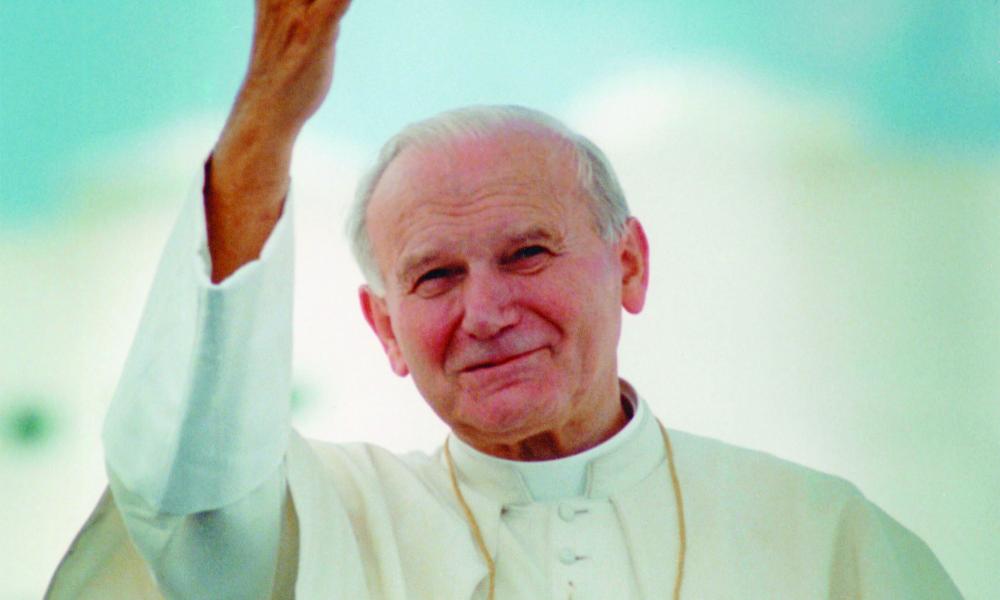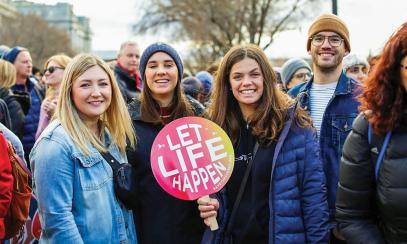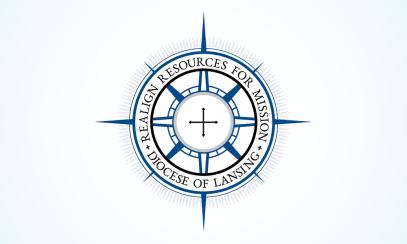
Theology of the Body
The recent canonization of Pope St. John Paul II offers the opportunity to reflect on the first major teaching of his pontificate (and perhaps the one that will turn out to be his greatest legacy). The setting for this teaching was his Wednesday General Audiences over a period of five years, during which he put forth what he called the Theology of the Body. Through the Theology of the Body, the saint hoped to call everyone to an authentic understanding and living out of what it means to be created male and female; of what it means to be created in the image and likeness of God. In other words, the Theology of the Body presents Pope St. John Paul II’s vision of what makes an integrated human person who is able to live a happy and fulfilled life.
The Theology of the Body is a vast, rich topic. That said, here is a sampling of some of the basic principles:
- The human being, body and soul, is created in the image and likeness of God and, therefore, has an unparalleled dignity and value. The body shares in this dignity and value precisely because each human being is a person, whose personhood is expressed through the body.
- Created in the image and likeness of God, the human being is called to act like God.
- Since God is love, the body, especially in its masculinity and femininity, should manifest God; should express divine love through the self-gift of one person to another.
- And, as each human being is an unrepeatable and unique being, each reflects God somewhat differently.
- Further, because the body physically expresses the person, it can be considered a sacrament, or a visible sign of an invisible reality. The body is a physical sign of who a person is. When a person acts as an image of God, the body becomes a sacrament of how God acts.
- This means the body cannot be separated from the person. What we do to someone’s body, we do to that person.
Foundation and topics
The Theology of the Body is grounded primarily in Scripture. In particular, Pope St. John Paul II reflected extensively on the Book of Genesis, the Song of Songs, the Sermon on the Mount and the Letters of Paul. In addition, the newly canonized pope looked to Pope Paul VI’s 1968 encyclical, Humanae Vitae, for further insight.
From these sources, he developed topics ranging from the meaning of humanity’s original solitude, unity and nakedness to the meaning of purity of heart and the challenge of concupiscence. The use of the body in art and media and an exploration of the significance of the resurrection of the body, the sacramentality of marriage and conjugal spirituality also are covered in the Theology of the Body.
Theology of the Body Retreat
FAITH spoke to Andrew Gallavan, a young adult who attended a Theology of the Body retreat sponsored by the Diocese of Lansing’s Department of Formation. Andrew said he was “somewhat familiar” with the teaching before the retreat, but that the day was a good introduction for those who are curious about what it all means. He said the material was presented in a “fun, upbeat” manner.
Bishop Earl Boyea presided at the opening Mass, and encouraged those present to be “active Catholics.” Speakers Dan Spitzley from Lansing Catholic, Director of Consecrated Vocations Dawn Hausmann and Father Dan Kogut, chaplain of Powers Catholic High School, encouraged people to live out their vocation and live it to the fullest, whether that vocation is to religious, consecrated or married life.
Andrew said Theology of the Body helps people understand how “our body is an important aspect of developing our faith,” and the retreat “lifted my spirit” and “helped me grow in my faith.”
Theology of the Body Training
Teens are facing unique challenges in the culture today, especially those concerning sexuality and human and divine love. Today’s challenges need to be addressed with a “new language” that explains how authentic Christianity makes sense because it corresponds perfectly with the deepest desires of the human heart. Bill Donaghy will present a training for leaders and adults on how to teach pre-teens and teens this teaching based on John Paul II’s Theology of the Body on October 16 and 17, 2014. An Intro to TOB course will be offered on October 18. Find more information at dioceseoflansing.org/vocations or contact Dawn Hausmann for further questions: 517.342.2506 or dhausmann@dioceseoflansing.org
“One of the boldest reconfigurations of Catholic theology in centuries … a theological time-bomb set to go off with dramatic consequences … it will compel a dramatic development of thinking about virtually every major theme in the Creed.”
– George Weigel, Witness to Hope: The Biography of Pope John Paul II
“We can understand that our bodies are not inert, heavy material but, if we know how to listen, they speak the language of true love.”
– Pope emeritus Benedict XVI, address to the John Paul II Institute for Studies on Marriage and Family
“... We can then deduce that man became the ‘image and likeness’ of God not only through his own humanity, but also through the communion of persons which man and woman form right from the beginning.”
– “Man Becomes the Image of God by Communion of Persons” (Nov. 14,1979)
“When God-Yahweh said, ‘It is not good that man should be alone,’ (Gn 2:18) he affirmed that ‘alone’ man does not completely realize this essence. He realizes it only by existing ‘with someone’ – and even more deeply and completely – by existing ‘for someone.’”
– “Revelation and Discovery of the Nuptial Meaning of the Body” (Jan. 9, 1980)
For those interested in learning more about the Theology of the Body, please visit www.usccb.org or www.johnpaulii.edu, the website for the Pontifical John Paul II Institute for Studies on Marriage and Family. All 129 of Pope John Paul II’s General Audiences on the Theology of the Body can be found at www.ewtn.com.



